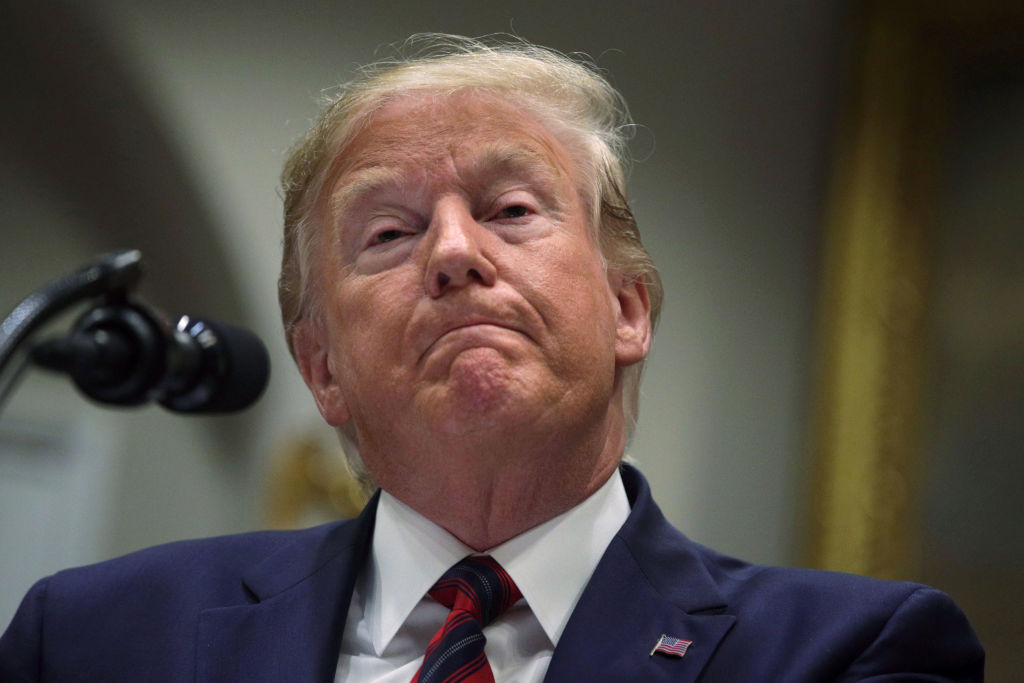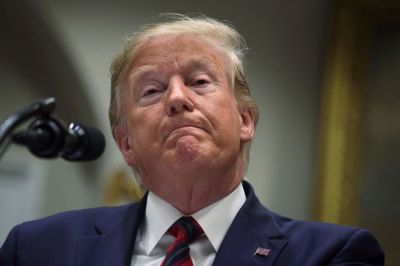Donald Trump became the first former president to face federal indictment Thursday after a grand jury handed down 37 counts against him related to the mishandling of classified documents.
Prosecutors allege Trump violated seven federal statutes: willful retention of national defense information, conspiracy to obstruct justice, withholding a document or record, corruptly concealing a document or record, concealing a document in a federal investigation, scheme to conceal, and making false statements and representations. Also charged as an co-conspirator is Walt Nauta, an aide to Trump.
The office of the special counsel, which began its investigation into the documents in March 2022, alleges several instances of Trump and Nauta trying to conceal the documents Trump took from the White House after his term ended. The investigation eventually culminated in a search warrant federal agents executed at Trump’s Mar-a-Lago resort home on August 8, 2022.
The National Archives and Record Administration asks for documents back.
The National Archives and Record Administration (NARA), the agency responsible for preserving presidential records, began contacting Trump in May 2021 about documents the former president may have had in his possession. In June, the department warned that if Trump didn’t turn over all documents he had, NARA would turn the investigation over to the Department of Justice.
After reviewing documents in dozens of boxes full of materials, Trump sent 15 boxes of materials to NARA in January 2022. NARA found 14 of the boxes contained documents with classification markings. Soon after, NARA recommended the Justice Department investigate further.
The Department of Justice investigates.
On May 11, 2022, a federal grand jury issued a subpoena requiring Trump to hand over any classified documents still in his possession. Twelve days later, on May 23, 2022, Trump met with two of his attorneys at Mar-a-Lago.
“I don’t want anybody looking through my boxes, I really don’t,” Trump told his lawyers, according to the federal indictment that was unsealed Friday afternoon. “Wouldn’t it be better if we just told them we don’t have anything here?”
The former president was so hesitant to relinquish control of the documents that he not only suggested that his legal team should lie, but he also lied to them, the indictment says. Over the course of the next 10 days, Nauta took “approximately” 64 boxes from the storage room where they were being kept and brought them to Trump’s residence, where Trump planned to pick out papers to take with him on a flight, according to text messages between Nauta and an unnamed Trump family member printed in the indictment.
By the time a Trump attorney returned to Mar-a-Lago to look through the documents and confirm the subpoena had been complied with, Nauta had brought “only approximately 30 boxes” back to the storage room. As a result, “many boxes were not searched and many documents responsive to the May 11 Subpoena could not be found—and in fact were not found,” the indictment recounts.
It’s not the only instance of box-moving alleged in the indictment, which describes serious accusations of criminal behavior in new and striking detail. Photographs show that boxes spent time on a ballroom stage and stacked in a bathroom before they made their way to the storage room, which “could be reached from multiple outside entrances, including one accessible from The Mar-a-Lago Club pool patio through a doorway that was often kept open.” Mar-a-Lago is no sleepy beach hotel: According to the indictment, it is an “active social club” that between January 2021 and August 2022 hosted “tens of thousands” of guests.
Some documents were classified as ‘Top Secret.’
In the 14 boxes of documents Trump sent to NARA in January 2022, FBI agents later determined 197 documents had classification markings: 30 were marked “Top Secret,” 98 were marked “Secret,” and 69 were marked “Confidential.”
In their search of Mar-a-Lago on August 8, 2022, FBI agents found 102 documents with classification markings: 17 marked as “Top Secret,” 54 marked as “Secret,” and 31 marked as “Confidential,” according to prosecutors. Some contained “information regarding defense and weapons capabilities of both the United States and foreign countries; United States nuclear programs; potential vulnerabilities of the United States and its allies to military attack; and plans for possible retaliation in response to foreign attack,” the indictment says.
Trump allegedly flaunted sensitive documents.
Trump didn’t just leave the documents boxed and in storage, prosecutors say. Trump seems to have relished sharing them from time to time even as he warned guests that they shouldn’t be seeing them. In a 2021 meeting at his club in Bedminster, New Jersey, Trump showed a representative of his political action committee a classified map of a certain country “and told the PAC Representative that he should not be showing the map to the PAC Representative and to not get too close,” the indictment says.
Trump clearly cared about the boxes. When one of his employees suggested moving them out of Mar-a-Lago’s business center to make room for an actual office, another employee texted back, “Whoa!! potus specifically asked Walt for those boxes to be in the business center because they are his ‘papers.’”
In a 2021 exchange at Bedminster, Trump showed a staffer a “plan of attack” prepared by a senior military official, telling the people in the room that it was “highly confidential.”
“As president, I could have declassified it,” Trump said. “Now I can’t, you know, but this is still a secret.”
Jack Smith, the special counsel overseeing the Justice Department investigation, was blunt in his summary of the charges in a public statement he gave on Friday. The indictment charges Trump “with felony violations of our national security laws, as well as participating in a conspiracy to obstruct justice.”
“This indictment was voted by a grand jury of citizens in the Southern District of Florida,” Smith continued. “And I invite everyone to read it in full to understand the scope and the gravity of the crimes charged.”






Please note that we at The Dispatch hold ourselves, our work, and our commenters to a higher standard than other places on the internet. We welcome comments that foster genuine debate or discussion—including comments critical of us or our work—but responses that include ad hominem attacks on fellow Dispatch members or are intended to stoke fear and anger may be moderated.
With your membership, you only have the ability to comment on The Morning Dispatch articles. Consider upgrading to join the conversation everywhere.